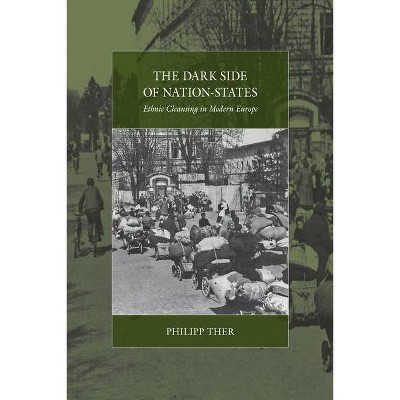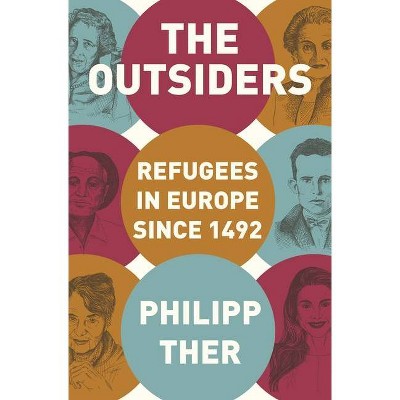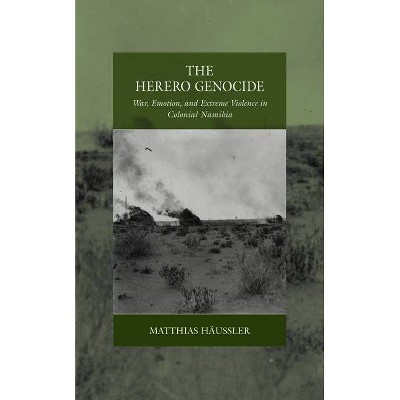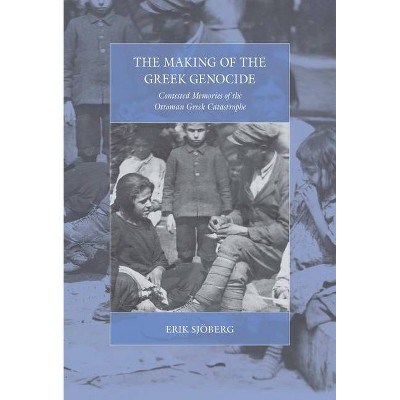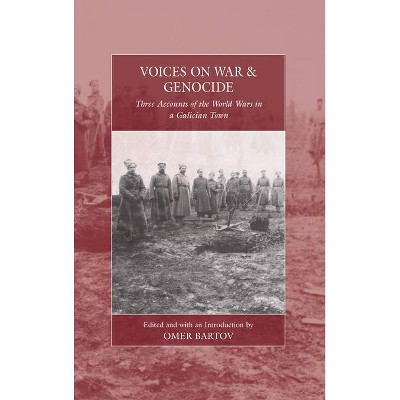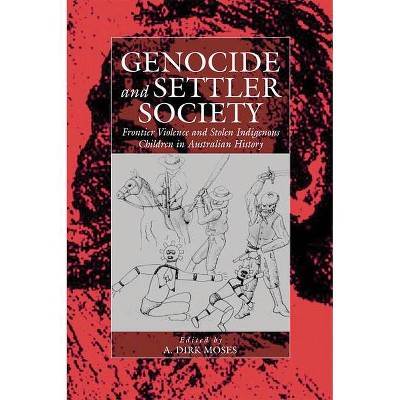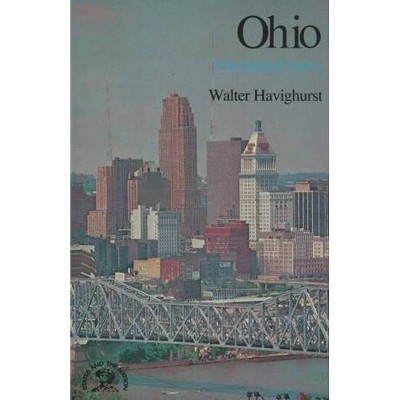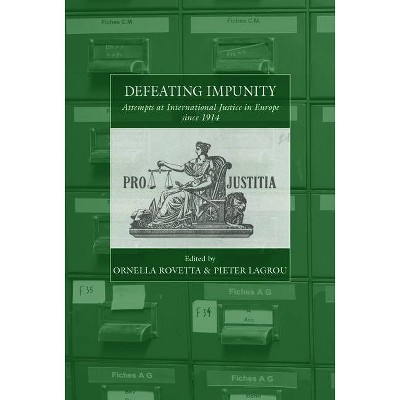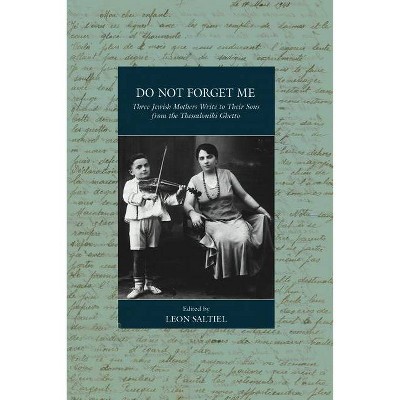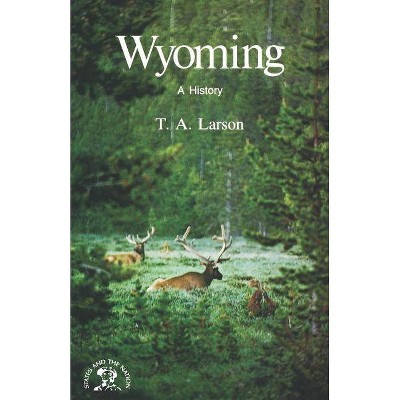The Dark Side of Nation-States - (War and Genocide) Annotated by Philipp Ther (Hardcover)
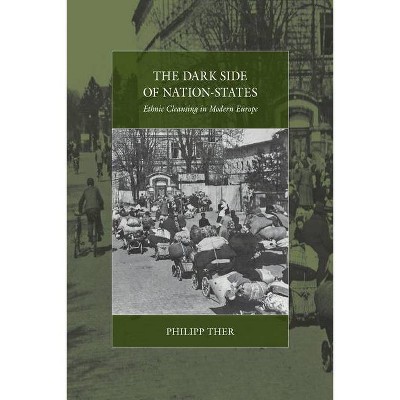
Similar Products
Products of same category from the store
AllProduct info
<p/><br></br><p><b> Book Synopsis </b></p></br></br><p> Why was there such a far-reaching consensus concerning the utopian goal of national homogeneity in the first half of the twentieth century? Ethnic cleansing is analyzed here as a result of the formation of democratic nation-states, the international order based on them, and European modernity in general. Almost all mass-scale population removals were rationally and precisely organized and carried out in cold blood, with revenge, hatred and other strong emotions playing only a minor role. This book not only considers the majority of population removals which occurred in Eastern Europe, but is also an encompassing, comparative study including Western Europe, interrogating the motivations of Western statesmen and their involvement in large-scale population removals. It also reaches beyond the European continent and considers the reverberations of colonial rule and ethnic cleansing in the former British colonies.</p><p/><br></br><p><b> Review Quotes </b></p></br></br><br><p> <em>"This instructive text offers a useful analysis of ethnic cleansing that drills into acts often conflated with genocide... Neatly written in a case study style, the chapters help readers understand the complex interplay of cultural bias and the politics of nation-states... The annotated bibliography that concludes the text is excellent, providing a range of sources that touch on country-specific literature and collective memory. This well-researched text will empower readers to carefully consider the intersections and differences between ethnic cleansing and genocide. - Highly Recommended."</em><strong> - Choice</strong></p> <p> <em>"Throughout his analysis, the author pays special attention to the ways in which international treaties have facilitated or halted ethnic cleansing in modern Europe and beyond...This emphasis makes Philipp Ther's sophisticated book a valuable contribution not just to the field of ethnic cleansing and genocide studies but also to the field of twentieth-century international history."</em> <strong>- European History Quarterly</strong></p> <p> <em>"This is a very fine book worthy of wide scholarly attention. Unlike most other scholars, who see genocide and ethnic cleansing as closely interrelated, Philipp Ther emphasizes the differences between them... I admire its clarity and succinctness and the mastery of a vast material demonstrated by its author. His erudition and courage let him make new and surprising connections and offer truly illuminating insights."</em><strong> - Slavic Review</strong></p> <p> <em>"...an interesting and thorough contribution to the literature on ethnic cleansing. It will undoubtedly create a lively discussion and, hopefully, further research on the role of international principles and actors in the process that leads to ethnic cleansing."</em><strong> - CritCom - Council for European Studies</strong></p> <p> <em>"Philipp Ther's newest contribution to the burgeoning literature on ethnic cleansing, forced deportation, and population transfer in the Twentieth Century is admirable in a number of ways. [It] is a genuinely comprehensive treatment of one of the most central problems of modern European history."</em><strong> - Norman Naimark, H-Soz-u-Kult</strong></p> <p> <em>"His synthesis is especially innovative in assessing the role of nationalism, pointing out the influence of writers, colonialism and of the idea of the national state...Ther provides a highly informative synthesis that both summarizes existing research and contributes a thought-provoking interpretation."</em><strong> - American Historical Review</strong></p> <p> <em>"A groundbreaking study...based on an impressive amount of facts and balances... This analytically dense, well-written book is highly recommended for a broad audience."</em><strong> - Frankfurter Allgemeine Zeitung</strong></p> <p> <em>"Throughout his book, Ther develops a brilliant conceptual history (Begriffsgeschichte) of 'ethnic cleansing' and other crucial semantics, such as the extremely negatively connoted notion of 'minority' in the history of modern nation-states. His multilayered history of concepts also demonstrates his impressive language skills, proof of which is found in the annotated bibliography at the end of the book. He is also able to take up the challenging task of writing about an entire century and a wide range of different types of 'ethnic cleansings'...Moreover, he has excellent knowledge of the voluminous literature about the various cases of ethnic cleansing in twentieth century Europe."</em><strong> - Journal of Genocide Research</strong></p><br>
Price History
Price Archive shows prices from various stores, lets you see history and find the cheapest. There is no actual sale on the website. For all support, inquiry and suggestion messages communication@pricearchive.us
